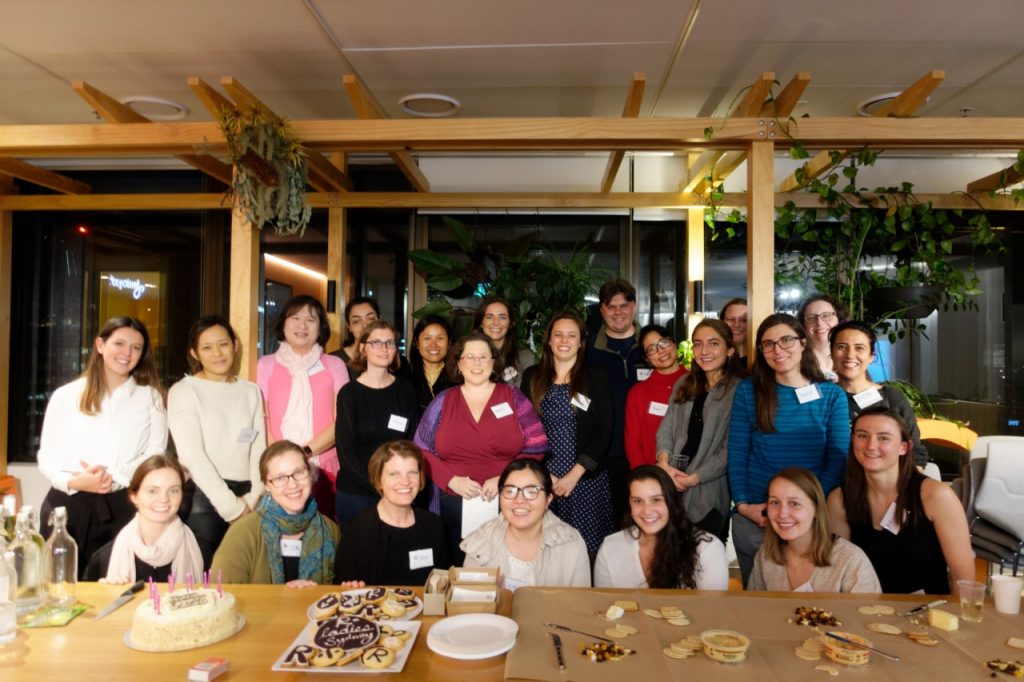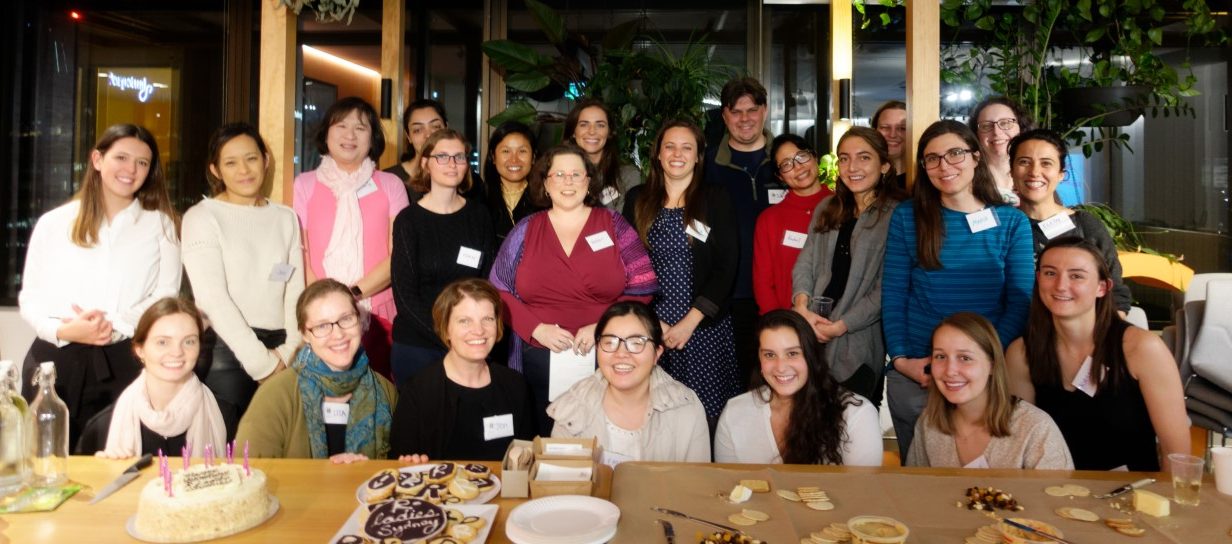By Jessica Lee
I love R. I’m that person who is always talking about R and encouraging other people to try it.
When I found out that a Sydney chapter of R-Ladies was starting, I knew I had to join. R-Ladies is a global organisation whose mission is to “achieve proportionate representation by encouraging, inspiring, and empowering people of genders currently underrepresented in the R community”. Given that programming, maths, and science are still seen as male-dominated fields, initiatives such as R-Ladies are invaluable for promoting gender diversity.
R-Ladies Sydney was founded by Jenny Richmond, Lisa Williams, Danielle Navarro, and Steph Stammel. Jenny, Lisa, and Danielle are Associate Professors working at the School of Psychology at UNSW Sydney, and Steph is a management consultant. I asked Jenny and Lisa what inspired them to start on their R journey.

What made you want to learn R?
Jenny: My PhD student had a complex dataset from an electromyography (EMG) experiment. It was a multifactorial design with missing data. I knew I had to use linear mixed models to analyse the data, but this is hard to do in SPSS. Everyone I spoke to said I had to use R. So I originally learned R in order to use linear mixed models. I then found out that R was a good solution to other data problems I was having. Most of the time I spend in R is not doing statistics, it’s doing data cleaning and getting data from its raw form to the point of being analysable.
Lisa: There’s always a point in any data-related career where the answer to a technical “how do I do X” question is “in R!” For me, that’s popped up in the context of multilevel models, text analysis, and power analysis/sample size determination, among others. More broadly, learning R opens up my capability as a research advisor to train my students in a more flexible, and free, platform that’s of use to them no matter where their careers take them.
What made you want to start R-Ladies Sydney?
Jenny: I wanted to learn R and was stalking the “rstats” hastag on Twitter. I got the impression that lots of people were finding the R-Ladies chapters in their city very useful. I basically wanted to create a learning community for myself. Other people who were thinking of starting R-Ladies were in the middle of their PhD. I thought, I’ll just do it myself!
Lisa: A clear appetite for an inclusive community to learn R was emerging. I remember exchanging emails with co-founders Jenny Richmond and Danielle Navarro where the idea of founding an R-Ladies Sydney chapter came up – just as soon as it came up, it was decided. The R-Ladies vision to build a more gender-equitable community of practice for R is deeply resonant with many of my other activities in the broader science community. I feel fortunate to be a part of creating a space in which folks in Sydney – and indeed around the world – can gain the skills and confidence they need, all the while participating in a supportive and genuinely positive network.
What do you like most about R?
Jenny: The power of visualisation. Before R, I generally didn’t plot data until I had “averaged the hell out of it” and got rid of all the variability. Using packages like ggbeeswarm, I can easily visualise data on an individual level. This is really helpful for finding errors in your data, or checking whether your effects are driven by outliers. The other thing I like is that R makes your analysis process reproducible. RMarkdown allows you to embed code, detailed notes to yourself and output in a reproducible document that you can share with others. It’s very powerful.
Lisa: It’s free! There’s a package for just about anything! The reward of successfully coding something is unbeatable! Also, the broader community is amazing. R users on Twitter are more than happy to dedicate their own time to help sort out a problem. The R-Ladies community is even more inclusive.
What resources would you recommend to a beginner?
Jenny: I recommend that as a beginner, try and find resources written by beginners. When you’re a beginner, you don’t yet suffer from the curse of knowledge and you remember what stumbling blocks you came across. Documentation and vignettes from R packages often have a lot of assumed knowledge that makes it hard to understand for a beginner. We have a series of online modules called RYouWithMe that go through the basics of getting started with R.
Lisa: RStudio has just collated an excellent set of beginner resources in one place. This features our own R-Ladies Sydney #RYouWithMe series, which is a great starting point for learning R, in my humble opinion!
Andy Field has recently launched “Getting Started in R and Rstudio”.
And then – Google and Twitter! Chances are, someone else has come across the same error you’re trying to work through!

Having been to a few events, I can attest to the welcoming, supportive environment engendered by the R-Ladies community. It is inspiring to meet such talented people from varied backgrounds and skill levels, all using R in interesting ways. There are currently 689 members (join here!). Learning new things is hard, but having a strong support network who are generous with their time and knowledge makes it all a little easier (and fun).
Follow Jess on Twitter (@jesssileee)
Follow R-Ladies Sydney on Twitter (@RLadiesSydney)

